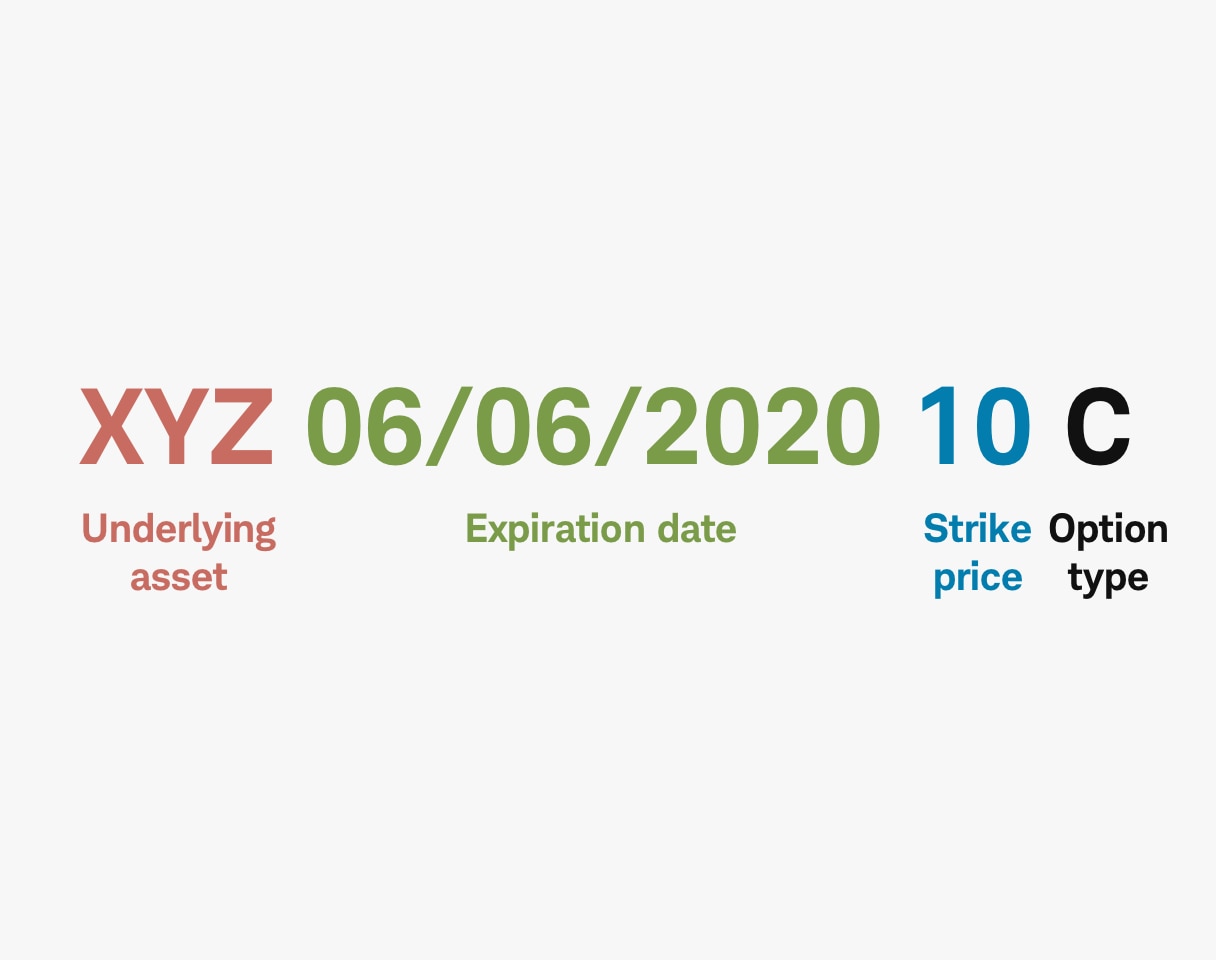
Explore the basic options contract types and considerations for trading them.
Call options
A call option gives the contract owner/holder (the buyer of the call option) the right to buy the underlying stock at a specified strike price by the expiration date Tooltip Expiration date: The date at which an option no longer trades and has expired. All options eventually cease to exist and have an expiration date. . Calls are typically purchased when you expect that the price of the underlying stock may go up.
Put options
A put option gives the contract owner/holder (the buyer of the put option) the right to sell the underlying stock at a specified strike price by the expiration date. Puts are typically bought when you expect that the price of the underlying stock may go down.
Learn more about the basics of call and put strategies.

Let's look at why someone might consider buying or selling a call option.
If your call option goes up in price, it enables you to sell the option for more than you paid. Buying a call option requires less capital than buying the stock outright.
Potential risksIf the stock price doesn't go up and you don't exercise the option, you lose what you paid for the call; if the stock price goes over the strike price by as little as a penny, you could be required to purchase the stock at expiration.
Seller of a call option Potential benefitsEarn a premium Tooltip Premium: the cost of purchasing an option or amount collected from selling an option. for the contract, and if it expires because the stock price didn't go up, you won't be obligated to sell the stock.
Potential risksIf assigned, you have to sell the stock, likely at a price below market value; the risk may be unlimited if you don't already own the stock.
Now, let's look at why someone might consider buying or selling a put option.
If the stock price goes below the strike price, you can exercise the contract and sell the shares for a price above the market price.
Potential risksIf the stock price expires at or above the strike price(s), the option expires worthless, and you can lose the money you paid for the options contract.
Seller of a put option Potential benefitsEarn a premium for the contract, and if it expires because the stock price stayed the same or went up, you won't have to buy the stock, and you still keep the premium.
Potential risksYou may have to buy the stock at a price above market value, and the stock price could continue to fall. If you do not close the position, you may be assigned and have to buy the stock.
These components appear in an options contract symbol, though different brokers may order them differently.
Underlying asset – This is the security/asset the option allows you to purchase or sell.
Expiration date – If an option is not closed out by the expiration date, it expires.
Strike price – This is the price at which you can buy or sell the shares.
Option type – This letter, either a "C" or "P", indicates whether it is a call or a put.

The buyer or seller of the contract can usually close the position, which removes their obligation or right.
Exercising a call allows the holder to buy the underlying security; exercising a put allows the holder to sell it.
If the stock is trading below the holder's call price (or above the put strike price) at expiration, then it will expire worthless.
Clients can learn more with our Options for Beginners: Income Strategies educational course . Log in to get started.
Options carry a high level of risk and are not suitable for all investors. Certain requirements must be met to trade options through Schwab. Please read the options disclosure document titled "Characteristics and Risks of Standardized Options." Supporting documentation for any claims or statistical information is available upon request.
With long options, investors may lose 100% of funds invested.
Investment and Insurance Products Are: Not FDIC Insured • Not Insured by Any Federal Government Agency • Not a Deposit or Other Obligation of, or Guaranteed by, the Bank or any of its Affiliates • Subject to Investment Risks, Including Possible Loss of Principal Amount Invested
The Charles Schwab Corporation provides a full range of brokerage, banking and financial advisory services through its operating subsidiaries. Its broker-dealer subsidiary, Charles Schwab & Co. Inc. (Member SIPC), and its affiliates offer investment services and products. Its banking subsidiary, Charles Schwab Bank, SSB (member FDIC and an Equal Housing Lender), provides deposit and lending services and products. This site is designed for U.S. residents. Non-U.S. residents are subject to country-specific restrictions. Learn more about our services for non-U.S. residents, Charles Schwab Hong Kong clients, Charles Schwab U.K. clients.
© 2024 Charles Schwab & Co., Inc. All rights reserved. Member SIPC . Unauthorized access is prohibited. Usage will be monitored.
